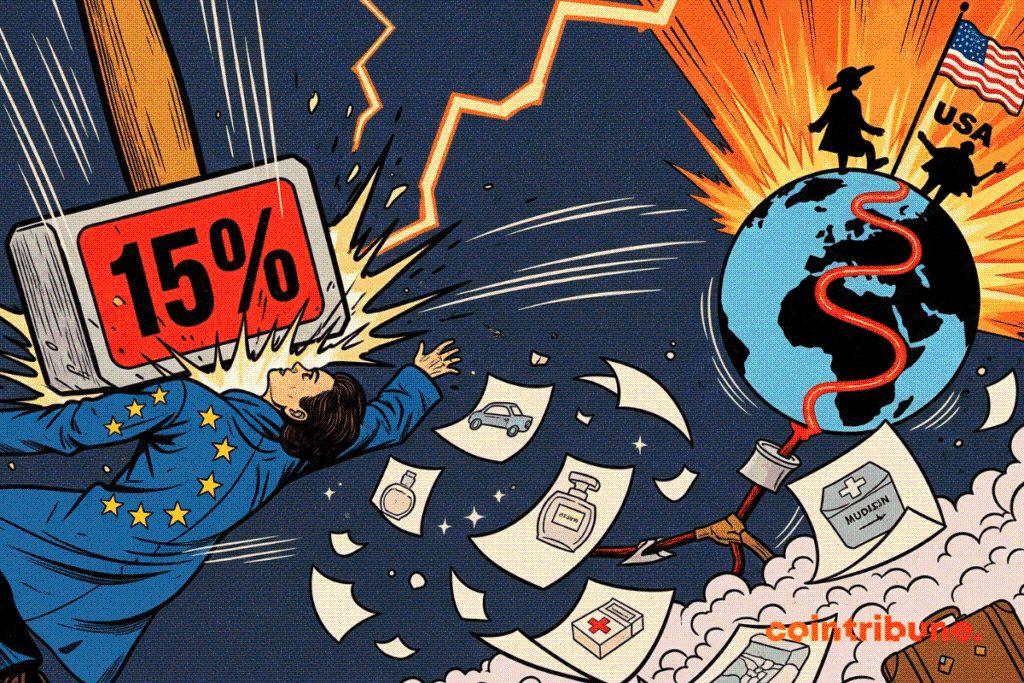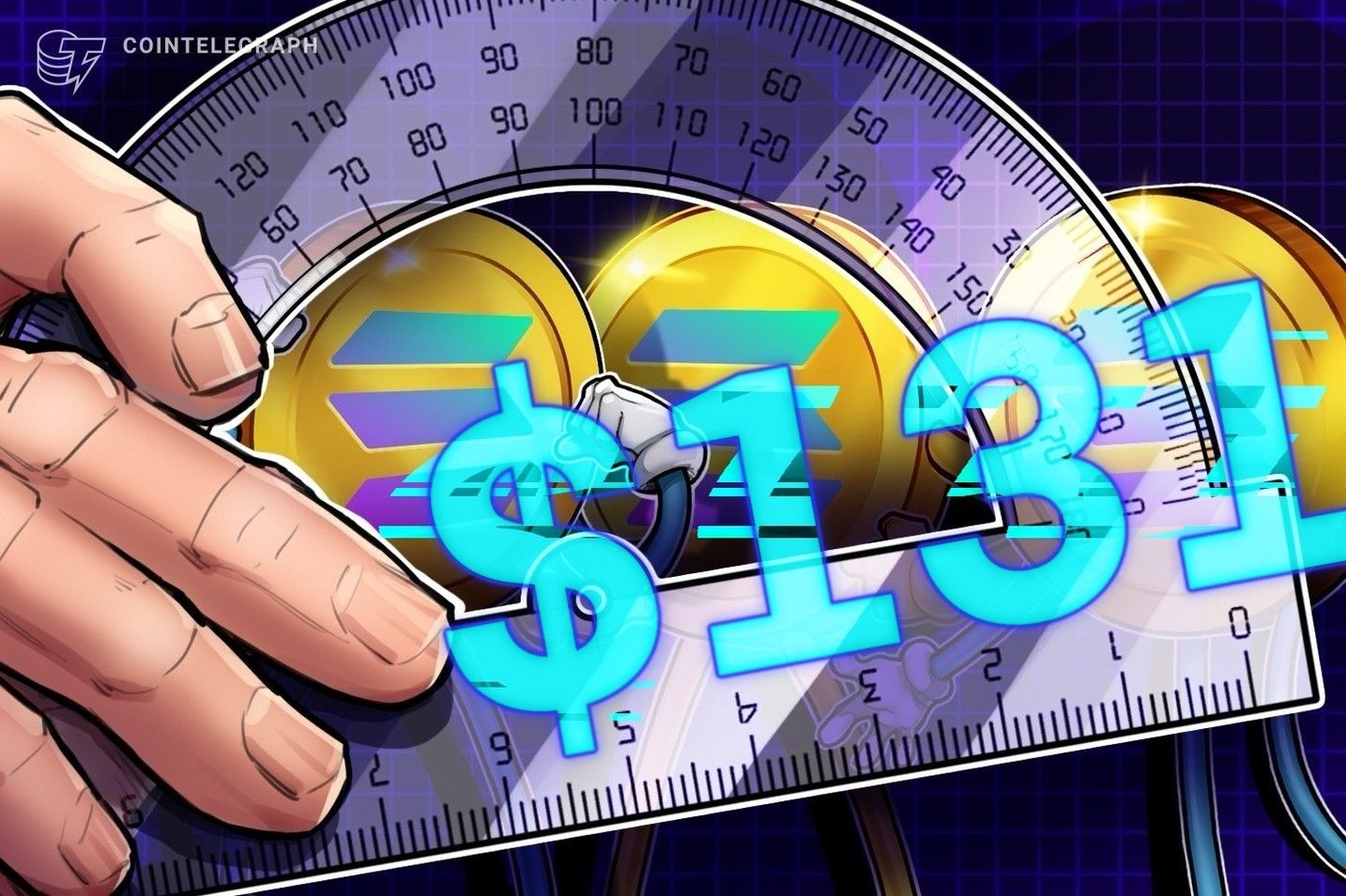A Turning Point for the Global Economy: What the EU–US Customs Deal Really Means
The European Union and Donald Trump have just signed a historic — yet controversial — agreement. Its stated goal: to redefine transatlantic trade. But behind the official announcement, the entire European economy is shaking. All the details below.

In Brief
- Trump imposes a 15% tax on key sectors of the European economy.
- The EU commits to purchasing 750 billion dollars of American energy, weakening its economic sovereignty.
A European economy hit at the heart of its strategic sectors
Sunday, July 28, the so-called Turnberry Agreement imposes a 15% tax on a wide range of European products exported to the United States . More explicitly, this protectionist turn directly affects strategic sectors such as:
- automotive,
- luxury,
- pharmaceuticals,
- cosmetics.
For example, German manufacturers will now face a 15% customs duty — a change from the 27.5% tariffs they’ve been subject to since April. In the luxury sector, LVMH and Kering are trying to offset the impact by relocating part of their production to the U.S. However, wine and spirits exports remain in a grey area, with no clear resolution in sight. These sectors account for €8 billion in annual exports.
An agreement with vague outlines but massive impact
The transatlantic economy is also shaken by the EU ‘s commitment to purchase 750 billion dollars of fossil fuels, including American shale gas. These promises, which are difficult for the European Commission to implement, risk worsening the trade balance. But not only that! They could also contradict climate goals, as highlighted by the agreement concluded between Ursula von der Leyen and Donald Trump on tariffs.
Another sensitive point: the end of customs exemption for medicines, which alone represent 22.5% of European exports. For many observers, this is a ticking time bomb for European trade policy.
In total, between forced imports, sectoral taxation, and industrial reorientations, this agreement ushers the European economy into a new era of strategic dependence.
One thing remains certain: the agreement between Donald Trump and the European Union illustrates a profound reshaping of the global economy. It is clear that international trade is now played on unequal terms.
Disclaimer: The content of this article solely reflects the author's opinion and does not represent the platform in any capacity. This article is not intended to serve as a reference for making investment decisions.
You may also like
November 21 Key Market Information Gap, A Must-See! | Alpha Morning Report
1. Top News: Base Co-founder Jesse's jesse Token Released, Currently Valued at $14 Million 2. Token Unlock: $DMC, $ID

Bitcoin slump to $86K brings BTC closer to ‘max pain’ but great ‘discount’ zone

Bitcoin, stocks crumble after Nvidia earnings and Fed uncertainty over next rate cut

Solana ETF inflows soar: When will SOL price follow the trend?

